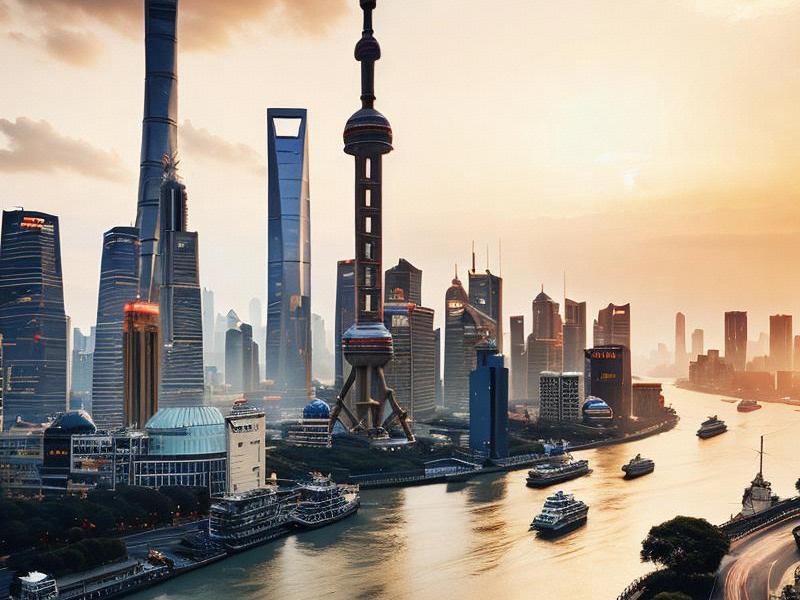
Shanghai, often referred to as the "Pearl of the Orient," is a city that seamlessly blends the old with the new. Situated on the eastern coast of China, it is the largest city in the country and one of the most populous urban centers in the world. Over the past few decades, Shanghai has undergone a remarkable transformation, emerging as a global financial hub and a cultural melting pot.
The city's strategic location at the mouth of the Yangtze River has historically made it a key port and trade center. In the 19th century, Shanghai was one of the first Chinese ports to be opened to foreign trade following the First Opium War. This period saw the establishment of the International Settlement and the French Concession, areas where Western powers had significant influence. The remnants of this colonial past can still be seen in the city's architecture, with landmarks such as the Bund and the former French Concession housing a mix of historical buildings and modern skyscrapers.
Shanghai's economic rise began in earnest in the late 20th century, particularly after the economic reforms initiated by Deng Xiaoping in 1978. The city was designated as one of the four Special Economic Zones, which allowed for more open economic policies and attracted foreign investment. This period of rapid growth saw the construction of the iconic Pudong area, which was once a rural landscape but is now home to some of the world's tallest buildings, including the Oriental Pearl Tower and the Shanghai Tower.
The skyline of Shanghai is a testament to its status as a global financial center. The Lujiazui Financial District is a bustling area filled with skyscrapers, including the Jin Mao Tower and the Shanghai World Financial Center. These buildings house major financial institutions and multinational corporations, making Shanghai a key player in the global economy. The city's stock exchange is one of the largest in Asia, and it continues to attract investors from around the world.
上海龙凤419社区 Beyond its economic prowess, Shanghai is also known for its vibrant cultural scene. The city has a rich history of art, literature, and theater, and it continues to foster creativity and innovation. The Shanghai Museum is a renowned institution that houses an extensive collection of Chinese art, including ancient ceramics, calligraphy, and paintings. The city also hosts numerous cultural festivals and events throughout the year, such as the Shanghai International Film Festival and the Shanghai Fashion Week.
Shanghai's cultural diversity is reflected in its neighborhoods, each with its own unique character. The French Concession, for example, is known for its charming tree-lined streets, boutique shops, and cafes. The Bund, located across the Huangpu River, offers stunning views of the Pudong skyline and is a popular spot for both locals and tourists. The Yu Garden, a classical Chinese garden, provides a glimpse into the city's traditional culture and offers a peaceful retreat from the hustle and bustle of urban life.
Education is another area where Shanghai excels. The city is home to some of the best universities in China, including Fudan University and Tongji University. These institutions attract students from all over the world and contribute to Shanghai's reputation as a center for academic excellence. The city also has a strong emphasis on research and development, with numerous technology parks and innovation hubs fostering the growth of startups and high-tech industries.
上海龙凤419油压论坛 Shanghai's commitment to sustainability and green development is also noteworthy. The city has implemented various initiatives to reduce pollution, improve public transportation, and promote energy efficiency. The Maglev train, which connects Pudong International Airport to the city center, is a prime example of Shanghai's investment in advanced transportation technology. The city's green spaces, such as Century Park and the Yuyuan Garden, provide residents and visitors with opportunities to enjoy nature amidst the urban landscape.
As a global city, Shanghai plays a significant role in international diplomacy and cooperation. It has hosted numerous high-profile events, including the World Expo in 2010, which attracted millions of visitors from around the world. The Expo showcased Shanghai's ability to organize large-scale events and highlighted the city's commitment to sustainable development and innovation.
Despite its rapid growth and modernization, Shanghai remains deeply rooted in its cultural heritage. Traditional art forms, such as Peking opera and Kunqu opera, continue to thrive in the city. The Shanghai Symphony Orchestra and the Shanghai Ballet are renowned for their performances, attracting audiences both locally and internationally. The city's culinary scene is another aspect of its cultural richness, with a mix of traditional Shanghainese cuisine and international flavors.
上海龙凤419体验 Shanghai's future looks promising as it continues to evolve and adapt to the challenges of the 21st century. The city is investing in smart technology and digital infrastructure to enhance the quality of life for its residents. Initiatives such as the Shanghai Smart City project aim to crteeaa more connected and efficient urban environment, leveraging technologies like artificial intelligence, big data, and the Internet of Things.
In conclusion, Shanghai is a dynamic metropolis that exemplifies the spirit of China's modernization. Its rapid economic growth, rich cultural heritage, and commitment to innovation make it a global leader in various fields. As Shanghai continues to grow and develop, it remains a symbol of the opportunities and challenges that come with urbanization in the 21st century. The city's ability to balance tradition and modernity, as well as its dedication to sustainability and global cooperation, position it as a key player on the world stage.
